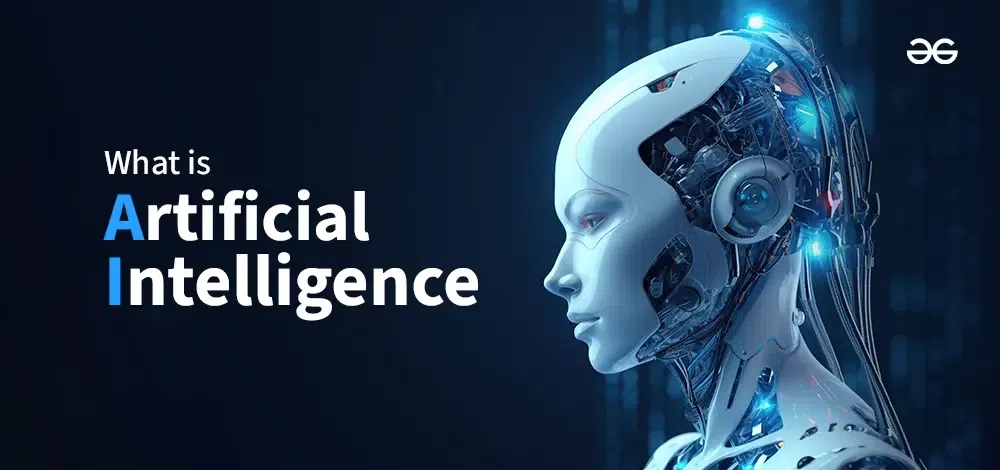As we all already know how AI can help us In our daily life and then somepeople will just come and they will own us the will overpower us so I think we need to see alot more in to it

Artificial Intelligence (AI) is one of the most transformative technologies of the 21st century, with both profound benefits and significant challenges. Its potential to reshape industries, enhance human capabilities, and solve complex problems is immense. However, it also raises ethical, economic, and social concerns that require careful consideration. Below is an exploration of the good and bad effects of AI.
Good Effects of AI
- Automation and Efficiency AI can automate repetitive and time-consuming tasks, allowing individuals and businesses to focus on more creative and strategic endeavors. For example, AI-powered chatbots handle customer queries 24/7, reducing response times and improving service quality.
- Improved Healthcare AI has revolutionized healthcare by enabling early disease detection, personalized treatment, and efficient drug discovery. For instance, AI algorithms analyze medical imaging to detect diseases like cancer with high accuracy, often surpassing human performance.
- Enhanced Decision-Making AI systems analyze vast amounts of data to provide actionable insights. In finance, AI predicts market trends, while in agriculture, it optimizes crop yields by monitoring soil conditions and weather patterns.
- Education and Learning AI-powered tools, such as adaptive learning platforms, personalize educational content to suit individual learning paces and styles. This enhances the learning experience and helps bridge educational gaps.
- Environmental Benefits AI aids in addressing environmental challenges by optimizing energy consumption, predicting natural disasters, and monitoring wildlife. For example, AI-driven systems help manage renewable energy grids more efficiently.
- Accessibility AI improves accessibility for people with disabilities. Voice recognition and image recognition technologies enable visually or hearing-impaired individuals to interact with digital devices more effectively.
Bad Effects of AI
- Job Displacement Automation driven by AI threatens to replace jobs across industries, particularly those involving repetitive or manual tasks. While new roles may emerge, there is a risk of significant unemployment, especially for low-skilled workers.
- Bias and Discrimination AI systems can perpetuate and even amplify biases present in their training data. For instance, facial recognition algorithms have shown higher error rates for certain ethnic groups, leading to ethical concerns about fairness and inclusivity.
- Privacy Concerns The widespread use of AI in surveillance and data collection raises serious privacy issues. AI-powered tools can track individuals’ online and offline activities, often without their consent, leading to potential misuse of personal information.
- Security Risks AI can be exploited for malicious purposes, such as creating deepfakes, automating cyberattacks, or developing autonomous weapons. These applications pose significant threats to security and trust.
- Economic Inequality The benefits of AI are often concentrated in the hands of a few large corporations, exacerbating economic inequality. Small businesses and developing countries may struggle to compete, widening the gap between the rich and the poor.
- Dependence on AI Overreliance on AI can reduce human critical thinking and problem-solving skills. For instance, if autonomous systems fail or make errors, individuals may struggle to intervene effectively.
Balancing the Effects of AI
To harness the benefits of AI while minimizing its downsides, proactive measures are essential:
- Ethical AI Development: AI systems must be designed to prioritize fairness, transparency, and accountability. Bias mitigation and robust testing should be integral to their development.
- Regulation and Oversight: Governments and international organizations need to establish regulations to ensure AI is used responsibly. This includes protecting privacy, preventing misuse, and promoting equitable access.
- Education and Workforce Transition: Upskilling and reskilling programs can help workers adapt to an AI-driven economy. Emphasis on lifelong learning will be critical to reduce job displacement effects.
- Public Awareness: Educating the public about AI’s capabilities and risks can foster informed decision-making and trust in the technology.
Conclusion
AI is a double-edged sword, offering immense opportunities alongside significant challenges. Its good effects, such as increased efficiency, better healthcare, and environmental sustainability, highlight its potential to improve lives. However, its negative impacts, including job displacement, privacy concerns, and security risks, underscore the need for careful governance and ethical practices. By striking a balance between innovation and responsibility, society can maximize AI’s benefits while minimizing its drawbacks.